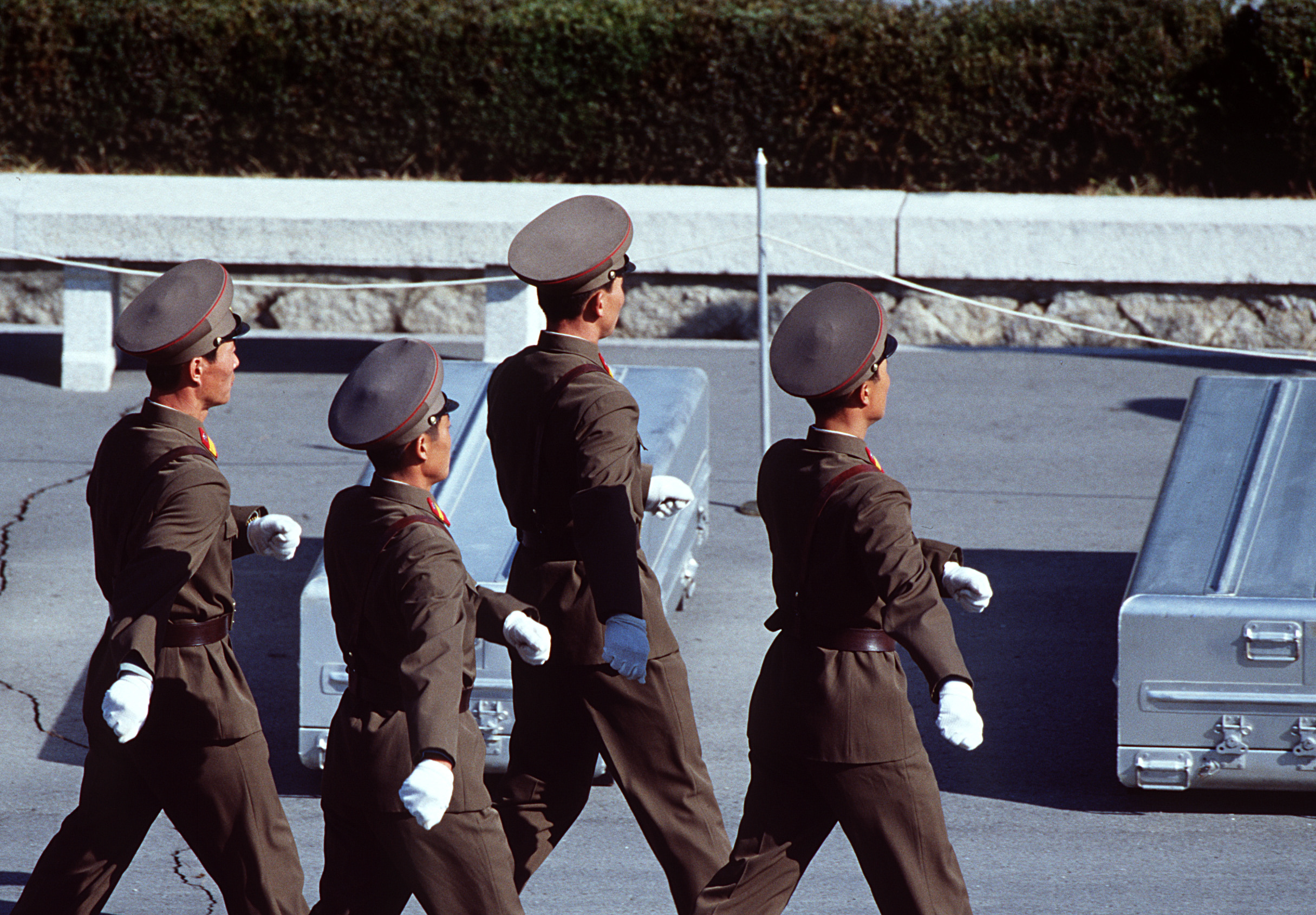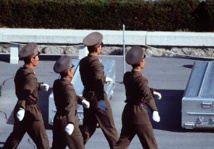US Senate Committee on Foreign Affairs approved a bill on sanctions against North Korea. President Barack Obama is expected to sign the document in the near time. The bill stipulates introduction of restrictive measures against individuals and companies involved in violations of supporting import of technology related to weapons of mass destruction to Korea. The punishment may also be caused by human rights violations, money laundering for the benefit of the country's leadership and production of counterfeit goods. Senate’s decision was the response to Pyongyang's message about successful launch of the carrier rocket with an artificial Earth satellite. Recall that the House of Representatives approved the law on sanctions against Pyongyang in January. Those measures were taken in response to statements by the North Korean leadership on January 6 on the successful test of the hydrogen bomb.
Today, state television showed footage of North Korea's rocket launch of a satellite made on last Sunday. So far, Pyongyang’s bodies of state information showed only pictures of a starting rocket and images of North Korea’s leader Kim Jong-un watching the operation. Successful launch of the artificial satellite "Kwangmyŏngsŏng-4" situated on a west coast launch site Shohei was announced on 7 February.
Recall that Pyongyang has already announced launch of satellites of this model series - in 1998, 2009 and 2012. The first two times, however, they were not detected in the orbit. South Korea, Japan and the West have traditionally resented the very fact of Pyongyang’s satellites launch in the past: they are convinced that the North Korean leadership’s real purpose in these operations is watching not the earth's surface, but testing of ballistic missiles. North Korea is forbidden to do such a military testing by UN Security Council’s resolutions adopted in particular in response to Pyongyang's reluctance to join the international non-proliferation regime.
This time, the UN Security Council also condemned the rocket launch, and is preparing to adopt a next resolution in response to Pyongyang's actions. According to the commander of the US Army Military Defence David Mann, the North Korean satellite does not transmit signals from orbit. This serves as an indirect confirmation of the West's version that North Korea is testing ballistic missile under artificial pretexts.
Seoul also reacted at the footage demonstrated by the North Korean TV today. First, the South Korean authorities announced agreements with the US and Japan on exchange of intelligence and strengthening cooperation in the Asian region. Such an exchange will be made at the level of superiors of Chiefs of Staff of the three countries.
Second, Seoul began evacuating its citizens from Kaesong Industrial Complex shared with the DPRK. The enterprise was opened in 2004 during the thaw in relations between the two countries and is situated in the south of North Korea. The company produces clothing, shoes, watches and other goods; about 120 North Korean companies are working there at the moment. "The work of the complex should not be used by North Korea to develop weapons of mass destruction at a time when the international community is working on the introduction of new sanctions against it," - Seoul justified its position.
source: reuters.com
Today, state television showed footage of North Korea's rocket launch of a satellite made on last Sunday. So far, Pyongyang’s bodies of state information showed only pictures of a starting rocket and images of North Korea’s leader Kim Jong-un watching the operation. Successful launch of the artificial satellite "Kwangmyŏngsŏng-4" situated on a west coast launch site Shohei was announced on 7 February.
Recall that Pyongyang has already announced launch of satellites of this model series - in 1998, 2009 and 2012. The first two times, however, they were not detected in the orbit. South Korea, Japan and the West have traditionally resented the very fact of Pyongyang’s satellites launch in the past: they are convinced that the North Korean leadership’s real purpose in these operations is watching not the earth's surface, but testing of ballistic missiles. North Korea is forbidden to do such a military testing by UN Security Council’s resolutions adopted in particular in response to Pyongyang's reluctance to join the international non-proliferation regime.
This time, the UN Security Council also condemned the rocket launch, and is preparing to adopt a next resolution in response to Pyongyang's actions. According to the commander of the US Army Military Defence David Mann, the North Korean satellite does not transmit signals from orbit. This serves as an indirect confirmation of the West's version that North Korea is testing ballistic missile under artificial pretexts.
Seoul also reacted at the footage demonstrated by the North Korean TV today. First, the South Korean authorities announced agreements with the US and Japan on exchange of intelligence and strengthening cooperation in the Asian region. Such an exchange will be made at the level of superiors of Chiefs of Staff of the three countries.
Second, Seoul began evacuating its citizens from Kaesong Industrial Complex shared with the DPRK. The enterprise was opened in 2004 during the thaw in relations between the two countries and is situated in the south of North Korea. The company produces clothing, shoes, watches and other goods; about 120 North Korean companies are working there at the moment. "The work of the complex should not be used by North Korea to develop weapons of mass destruction at a time when the international community is working on the introduction of new sanctions against it," - Seoul justified its position.
source: reuters.com



















